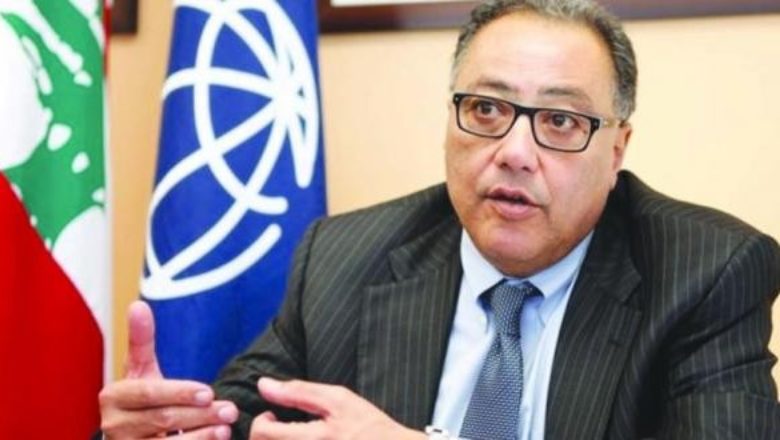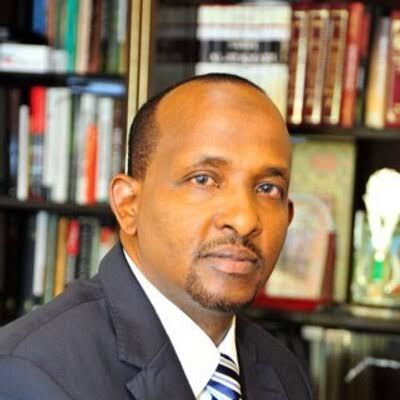Rwanda’s New Financial Centre Ready for Business By Nick Barigye
Rwanda’s dream of becoming East Africa’s financial hub and one of Africa’s economic and financial centres has received a boost with the new strategy set out to actualize government’s National Strategy for Transformation (NST1) 2024 plan. As part of the NST1, Rwanda has started with the kickoff of the Kigali International Finance Centre, with a public company Rwanda Finance Limited spearheading the establishment of an international finance centre. In this brief interview, the CEO of Rwanda Finance Limited Nick Barigye speaks on the plan and where the country would most likely be in the nearest future. Excerpts.

What’s the role and mandate of Rwanda Finance Limited in the establishment of Kigali International Finance Centre?
Read also:Rwandan Businesses Strategise to Tap Into Benefits of AfCFTA
In December 2017, the government approved a policy paper, setting out to establish Kigali International Financial Centre as a project that is looking to do reform within our financial services sector. And our reform is under three main pillars; laws and regulations within the financial service sector, the tax policy as relates to the financial sector, and skills and capacity development as relates to the financial service sector. That work is being led by the Ministry of Finance because it is responsible for policy formulation and implementation.
Read also:Rwanda to waive visa fees for Africans, Commonwealth, OIF citizens – Kagame
To be able to do that, part of what studies that were done at the time, advised that there needed to be a government agency that will now do the promotion once those reforms that had been raised are completed. So, that’s what birthed Rwanda Finance Limited. Rwanda Finance Limited is a government-owned company, whose mandate is to develop and promote Rwanda as a business and financial services hub.
So, in that sense, Rwanda Finance’s Limited mandate is to work with the industry players within the services sector, understand their needs, challenges, and then cause dialogue with policy formulators to address them. But at the same time, the mandate is now those policies are happening, then there is need to create awareness of our service offering not only as a sector but as a country both in Rwanda and outside Rwanda. That’s the distinction between Kigali International Financial Centre and Rwanda Finance Limited.
Read also:Thousands to Participate in Creative Africa Exchange (CAX) Kigali, Rwanda
Some might think that you are building a tax haven where the rich can hide their wealth. How true is that assumption?
All the work we are doing, be it on the rules and regulations on the tax policy, has been done to make sure that we are compliant with international standards as set out by European Union and OECD. We are mindful of that, and it is not a reputation that we want to have. We have ensured that our laws and regulations are compliant. And part of that compliance is to ensure that you’re not perceived to be a tax haven. I think even those jurisdictions that have previously had that kind of perception is working increasingly to change that. Part of that perception as well is caused by the perception that you are creating favoritism for external investors as opposed to local investors, which is what we are aiming to address.
Read also:Jumia Finally Quits Rwanda, Suspends Its Remaining Food Delivery Service In The Country
What are the features and characteristics of the International Financial Centre you seek to build? Are you replicating models such as New York, London, Hong Kong, Singapore and Shanghai which are ranked the world’s top financial centres?
Every jurisdiction bases on what they are good at, and what advantage it can take off. The success has been registered as a country, and that’s what we are starting from. RFL and Kigali International Financial Centre are going to build on work already done, which is tremendous. It is to instead to harness and build on to that. When you look to Rwanda, what is Rwanda known for? Right now within Rwanda and outside Rwanda, we are known for championing trade within Africa among Africans.
So, one of the products that we are going to be promoting as Rwanda Finance Limited within our ecosystem is called ‘global trade’. So, meaning we are going to attract investors who are looking to invest in Rwanda and also investors who are looking to use Rwanda for domiciliation to trade with other African countries.
So, emphasis on what successes have we registered as a country, how can we craft products that build on success. I think it is the UNCTAD 2019 report says ‘foreign direct investment to Africa taking stock of 2018, we were around $46 Billion. There is appetite, even outside Africa in general we are seeing increase of foreign direct investment.
If we are saying now to international investors, here is an alternative, here is a country in Africa, World Bank rates second in ease of doing business in Africa, it is a country that ranks second as a conference destination in Africa, and it has an airline, with 26 direct flights. We are offering an alternative jurisdiction to international investors.
Is there not replication of tasks currently being handled by other government agencies?
In every jurisdiction, there are different stakeholders. The central bank and the capital market are regulators, they’re not promoters. So, us, our mandate is to promote. It’s actually to create more business for the industry that is already in existence. To be able to do that, it is to first understand what their needs are, challenges they have faced. Right now, part of the legal framework that we are working on is laws and regulations.
What are some of the interventions you have made so far and what are planned in coming days?
An example, if you recall in January this year, the parliament enacted anti-money laundering law, which was a challenge. Even those already within the industry have faced. In the same time period, parliament enacted a law establishing a counter financial terrorism unit. So, it is those interventions that we are working with the industry to address. Part of the other laws that we are looking to, once approved by cabinet then enacted by parliament is a partnership law. When we looked to attract funds, you then have different actors within that ecosystem.
A common critic is that government does more to look out for interest of international investors than local investors. Will there be balance this time?
That concern has been heard loud and clear. There are discussions going on across different, all the sectors of our economy; agriculture, manufacturing among others where RDB is leading all this effort, to seek views on how they can improve our current investment code. Part of compliance to international standards is substance rules and requirement not to be perceived as a tax haven. We are having emphasis on substance.
Substance means if we are domiciling in Rwanda, business from Rwanda, or a business that outside Rwanda, we want to make sure that we are creating employment opportunities in Rwanda. We want to see that we are directors of that company, are resident in Rwanda. We want to see that taxes and tax filing is happening in Rwanda. Part of compliance to international standards is exactly ensuring that we are not creating a comparative advantage to foreign international investors over local investors. Whatever products and services and incentives that we are championing, so long as you feel the criteria. Whether you are local or foreign, then you benefit from them.
It’s not about whether you are international or local, so long as you comply and fulfill the criteria that we will have established, and then you qualify. So, currently existing local businesses, so long as they comply with that criteria would benefit from those incentives.
To what extent is the local ecosystem aware of what you are doing?
There is still room for awareness. And that’s what we are working on internally. We are working on an intensive awareness campaign to explain what we are doing and what the industry will benefit from it. Are they where we want them to be yet? No!
We are very aware of that, and we are embarking soon on roadshows, internally into explaining what we are doing, and why it is beneficial to our economy. That’s work in progress.
Then, to the rest of Africa, we are going to launch during CHOGM. That’s when we are coming out officially and introduce ourselves to the world. But even post-launch, we are going and we have already started looking for partnerships, looking for countries that we can sign tax treaties because that is important as well. There are countries that we’ve identified; I cannot go in detail at this moment.
We were present at the recent UK-Africa summit; we are identifying different events outside Rwanda, in Africa. We are aware there is the CEO summit that is happening in Abidjan, we will be present. There are other events that are happening in Africa that we see benefiting in present, we will. But beyond those specific summits, we also want to go on roadshows in specific countries of interest to us and create awareness and do promotions.
Kelechi Deca

Kelechi Deca has over two decades of media experience, he has traveled to over 77 countries reporting on multilateral development institutions, international business, trade, travels, culture, and diplomacy. He is also a petrol head with in-depth knowledge of automobiles and the auto industry


















